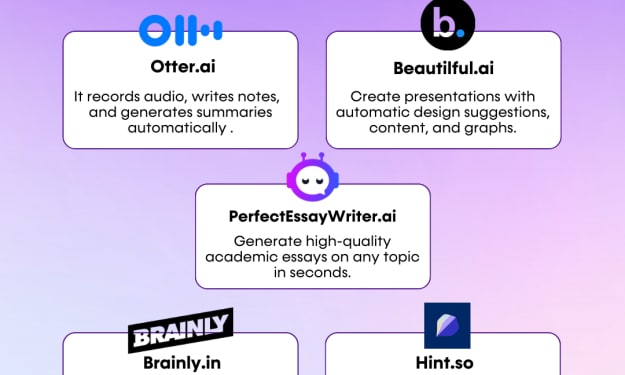The Evolution of AI Writing Tools: From Grammar Checkers to Advanced Generative Models
Essay Writing

I have witnessed significant progress in AI writing tools as an AI researcher and blogger. These tools have revolutionized our writing, making it easier and more efficient. In this blog post, I will discuss the evolution of AI writing tools, from simple grammar checkers to advanced generative models.
When it comes to writing, one of the most helpful AI writing tools is the essay writer. An essay writer is an AI-powered software that generates unique and high-quality essays on a given topic. As AI technology has evolved, essay writers have become more sophisticated, offering advanced features such as plagiarism checking, citation generation, and research assistance. The development of essay writers is just one example of the evolution of AI writing tools, as they have progressed from simple grammar checkers to advanced generative models that can produce entire pieces of writing.
Introduction
AI writing tools are computer programs designed to assist writers in various aspects of writing. These tools use natural language processing (NLP) techniques to analyze and understand text, allowing them to provide suggestions and feedback on grammar, spelling, style, and more. AI writing tools have become increasingly popular over the years as they help writers to produce high-quality content quickly and efficiently.
History of AI Writing Tools
Early Grammar Checkers
The first AI writing tools were simple grammar checkers. These tools analyzed text for grammatical errors, such as incorrect verb tenses, subject-verb agreement, and punctuation. The earliest grammar checkers were developed in the 1950s and 1960s and were based on rule-based systems. These systems used a set of predefined rules to detect errors in text. However, these systems could have been more accurate, as they often failed to identify errors not covered by their rules.
Spellcheckers and Auto-correct tools
Spellcheckers and auto-correct tools were the next generations of AI writing tools. These tools were designed to identify and correct spelling errors in text automatically. Spellcheckers and auto-correct tools use dictionaries to compare words in the text against a database of correct spellings. If the tool detects a misspelled word, it suggests the correct spelling for the user. These tools were introduced in the 1970s and have become essential to modern word-processing software.
Simple Writing Assistants
Simple writing assistants were developed in the 1980s and 1990s. These tools provided more advanced functionality than grammar checkers and spellcheckers. Simple writing assistants could suggest alternative words or phrases, identify repetitive or redundant sentences, and provide feedback on style and tone. These tools were based on statistical models and used algorithms to analyze text and suggest improvement.
Natural Language Processing (NLP) Tools
NLP tools are a more recent development in AI writing tools. These tools use advanced algorithms to analyze and understand the meaning of text. NLP tools can identify the parts of speech in a sentence, understand the context in which a word is used, and identify the relationships between words in a sentence. NLP tools can also provide suggestions for improvement in style and tone, making them excellent tools for professional writing.
Advanced Generative Models
Advanced generative models are the latest and most advanced AI writing tools. These tools use deep learning algorithms to analyze vast amounts of text and generate new content. Advanced generative models can create new sentences, paragraphs, or articles based on a prompt. These tools are incredibly powerful and can transform how we think about writing.
As the evolution of AI writing tools has progressed, one of the most beneficial advancements for students and writers has been the development of the free essay writer. These AI-powered software programs can assist with generating high-quality essays on a given topic without any cost to the user. With features such as advanced grammar and spelling checking, citation and reference generation, and research assistance, free essay writers have revolutionized how students and writers approach their work. The free essay writer is just one example of how AI writing tools are continuously evolving and improving to meet the needs of modern writers.
Grammar Checkers
Grammar checkers are one of the most basic types of AI writing tools. These tools use algorithms to analyze text for grammatical errors, such as incorrect verb tenses or punctuation. Grammar checkers help catch simple errors and can save time and effort in the editing process.
Advantages and Limitations
The advantages of using grammar checkers are that they can identify basic grammatical errors quickly and efficiently. However, these tools need to be improved in their ability to provide more detailed feedback on style, tone, and structure.
The ability of AI essay writers to generate high-quality content at such speed has revolutionized the writing process for many professionals, academics, and students alike. While there is still much debate over the ethics and effectiveness of AI writing tools, there is no denying that the ai essay writer represents a significant step forward in the evolution of writing technology.
Conclusion
In conclusion, the evolution of AI writing tools has revolutionized how we approach writing. From early grammar checkers and spellcheckers to the advanced generative models of today, AI writing tools have come a long way in improving the accuracy and effectiveness of our writing. They have proved helpful for academic and business writing, creative writing, and personal writing. As AI technology advances, we can expect more sophisticated writing tools to assist us in our writing endeavours further. However, it is essential to consider the ethical considerations surrounding the use of AI in writing and ensure that these tools are used responsibly and transparently.
About the Creator
James Daniels
James Daniels is a dedicated scholar currently pursuing a Postdoctorate in English Literature at Harvard University in Cambridge.






Comments
James Daniels is not accepting comments at the moment
Want to show your support? Send them a one-off tip.